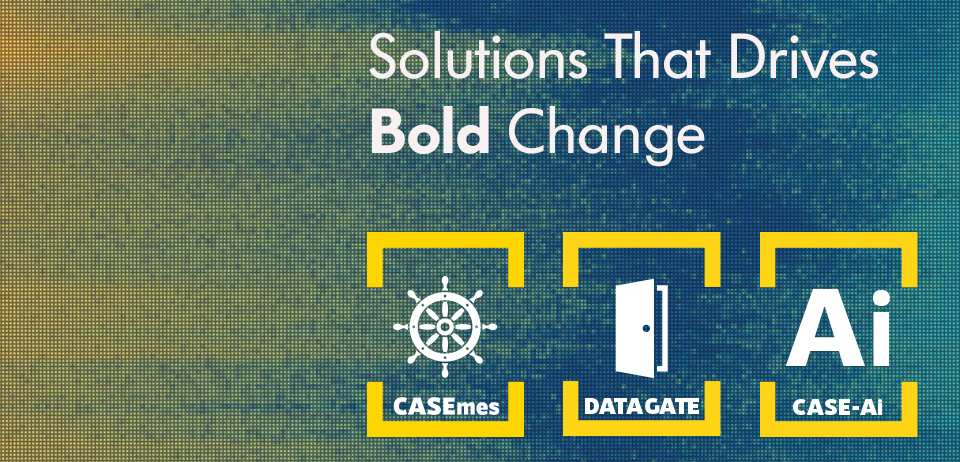
In today’s competitive landscape, businesses continuously seek ways to optimize their processes and enhance efficiency. One increasingly popular solution is integrating Artificial Intelligence (AI) with structured process management. At CASE Deutschland GmbH, we’ve experienced firsthand how effectively merging these two elements can transform operations.
This article outlines a proven seven-step approach to seamlessly blend AI into your company’s process management.

Step 1: Establish Clear Ownership
Effective process management starts with clearly defined ownership. A dedicated “process owner” oversees coordination, supported by a cross-functional team from involved departments. Clear roles ensure smooth coordination and eliminate ambiguity. Departments like Sales, Operations, Shipping, and Finance often play key roles, bringing essential insights that foster successful collaboration.
Step 2: Identify Your Process Customers
Understanding who benefits from your processes is crucial. Are your primary customers internal, external, or both? Clearly define what these customers need most and how your process can deliver this effectively. Focus on aligning processes with customer satisfaction, accurate data management, and operational efficiency, leveraging AI-driven analytics to deepen customer insights and improve services continuously.
Step 3: Map Out the Existing Process
Visualizing your current process is essential. A high-level flowchart can illuminate bottlenecks and inefficiencies. Utilize advanced process mining techniques to offer real-time insights into process performance, helping pinpoint areas needing optimization swiftly and accurately.
Step 4: Set Performance Measures and Targets
Clearly defined metrics help manage process performance effectively. Essential metrics typically include end-to-end cycle times, customer satisfaction rates, data accuracy, and overall process efficiency. By employing continuous analytics and AI-driven forecasting, organizations can set realistic yet ambitious targets, aligning closely with both strategic goals and practical capabilities.
Step 5: Leverage Process Enablers
Robotic Process Automation (RPA) tools, generative AI, and machine learning technologies can automate routine tasks, freeing human resources for strategic activities. Integrate solutions from industry leaders such as UiPath and Microsoft to significantly boost productivity and accuracy in critical processes like Order-to-Cash (OTC). Additionally, apply machine learning for fraud prevention, pricing optimization, and predictive staffing analytics, enhancing operational effectiveness.
Step 6: Redesign the Process
When redesigning processes, form cross-functional teams that integrate expertise from across your organization. By utilizing AI-based design tools and methodologies, processes can be redesigned with unprecedented efficiency and clarity. For instance, Deutsche Telekom’s successful HR-process redesign, facilitated by generative AI, showcases how drastically traditional approaches can be improved—saving millions and enhancing employee satisfaction simultaneously.
Step 7: Implement and Monitor Your Process
Implementation requires detailed planning, training, system integration, and effective communication. Continuous monitoring through process mining ensures sustained improvements and allows for immediate adjustments. Leverage these tools to maintain high predictability and swiftly manage any emerging issues.
Why Process Management and AI Matter Now More Than Ever
Combining structured process management with AI offers unprecedented potential for sustainable growth and efficiency. We firmly believe in the necessity of such integration for organizations striving for digital maturity and operational excellence.
Senior management must prioritize processes to truly leverage the advantages AI brings. The future is process-driven, data-informed, and AI-enhanced. Let CASE Deutschland GmbH support your journey toward operational excellence through expert consultation and innovative technological integration.
Ready to explore more about integrating AI and process management? Reach out to our team and let’s start your journey today.
Effective integration of AI into process management requires clearly defined roles, identification of key customers, and strategic application of automation tools. By leveraging advanced analytics and process mining, organizations can optimize efficiency, enhance customer satisfaction, and achieve sustainable operational excellence.

Iskander Rekik
Business Analyst,Digital Transformation Consultant
Sales and project development
Mob: +4915258459590
E-Mail: i.rekik@case-deutschland.de




